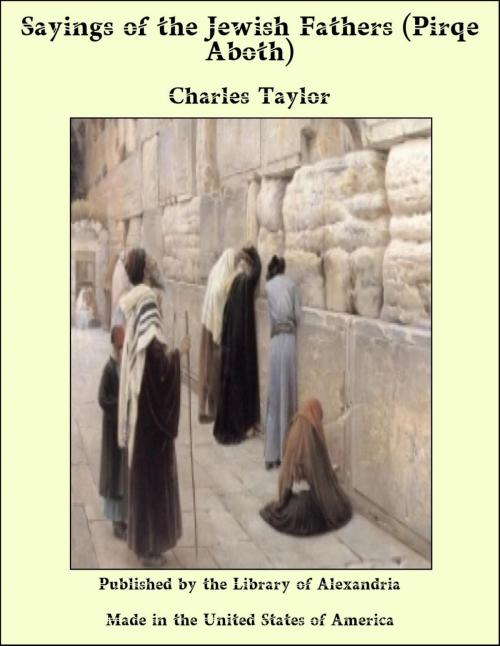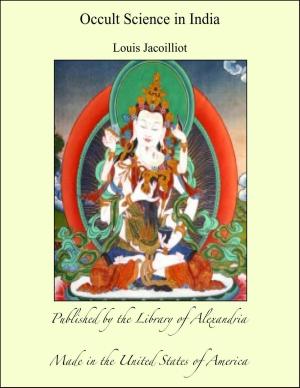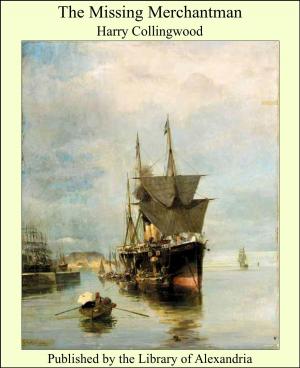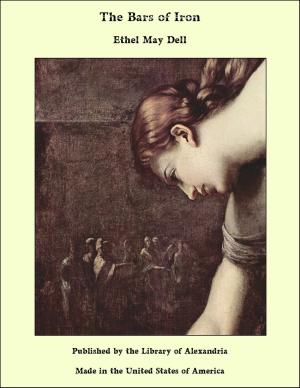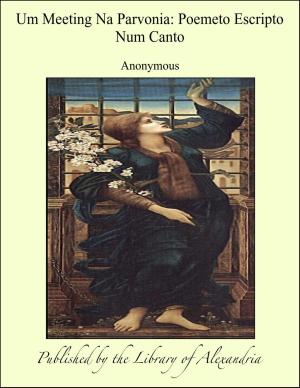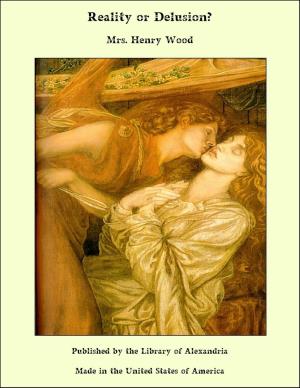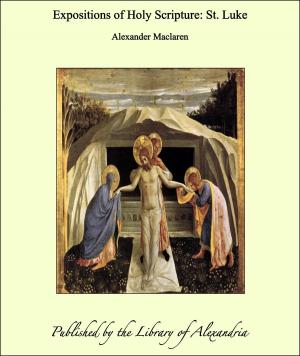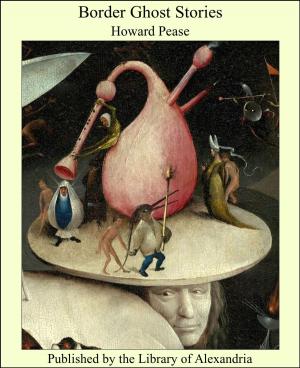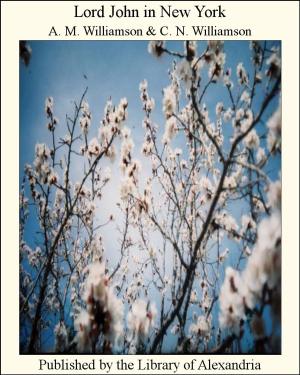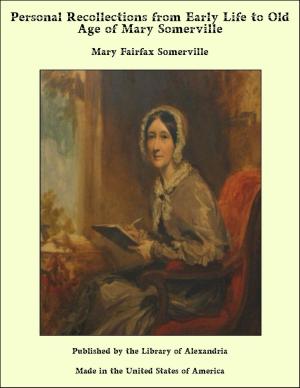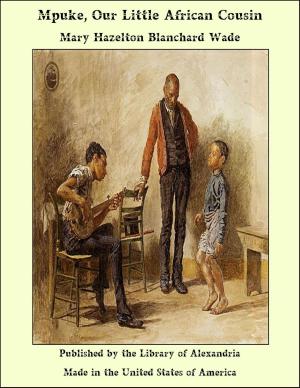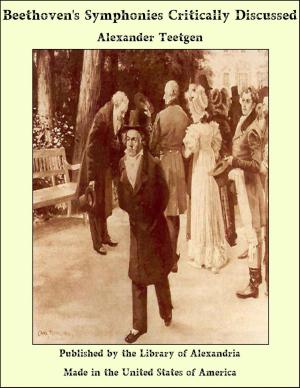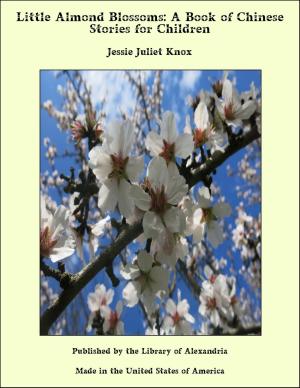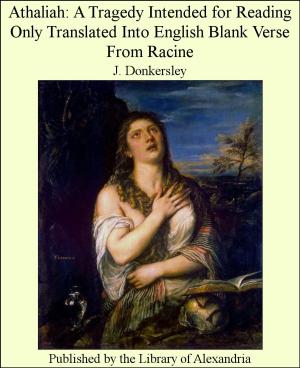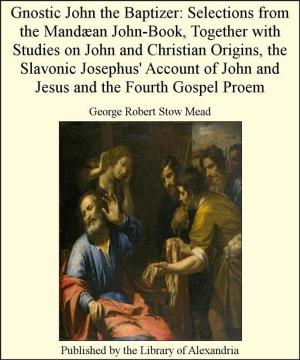Sayings of the Jewish Fathers (Pirqe Aboth)
Nonfiction, Religion & Spirituality, New Age, History, Fiction & Literature| Author: | Charles Taylor | ISBN: | 9781465579119 |
| Publisher: | Library of Alexandria | Publication: | March 8, 2015 |
| Imprint: | Language: | English |
| Author: | Charles Taylor |
| ISBN: | 9781465579119 |
| Publisher: | Library of Alexandria |
| Publication: | March 8, 2015 |
| Imprint: | |
| Language: | English |
The Second Edition of Dibré Aboth ha-Olam or Sayings of the Jewish Fathers may be shortly described as a reprint of the work as published in 1877, with a section of ADDITIONAL NOTES. Interspersed with the reprint are insertions in square brackets, a few things are omitted, and short new notes fill up pages 26, 41, 77, 98. With the two titles of the book compare Shebach ABOTH OLAM in the Hebrew of Ecclesiasticus and its Greek rendering ?at???? ??µ??? {Greek Patérwn ú?mnos}. An Appendix not yet published contains the CATALOGUE of Manuscripts referred to in the Introduction, which was announced as undertaken "with especial reference to disputed readings," followed by critical Notes on the Text of Aboth. It is complete as first planned, but awaits a supplement describing Manuscripts examined or to be examined by Mr Schechter, Reader in Talmudic and Rabbinic in the University of Cambridge, to whose learning and acumen I am indebted for the suggestion of additions and improvements throughout the work. The collection of Manuscripts lately brought from Egypt by Mr Schechter, with the generous consent of the Grand Rabbi of Cairo, includes some fragments of the Old Testament in Greek with the TETRAGRAMMATON written repeatedly in Hebrew characters ??? t?&?c??c;? ?&?c??c;? a???? t?&?c??c;s a???a??t?t??s {Greek ou? toîs nûn a?llà toîs a?rxaiotátois}, in accordance with the remark of Origen on Psalm ii. (Opp. II. 539) that it so stood e?? t?&?c??c;s a????ßest????s t?^? a??t????f?? {Greek e?n toîs a?kribestérois tw^n a?ntigráfwn}, and the confirmatory testimony of St Jerome (Praef. in Sam. et Malachim) "Et nomen Domini tetragrammaton in quibusdam Graecis voluminibus usque hodie antiquis expressum litteris invenimus." The Name is so written in the annexed specimen of Aquila's version of the Old Testament.
The Second Edition of Dibré Aboth ha-Olam or Sayings of the Jewish Fathers may be shortly described as a reprint of the work as published in 1877, with a section of ADDITIONAL NOTES. Interspersed with the reprint are insertions in square brackets, a few things are omitted, and short new notes fill up pages 26, 41, 77, 98. With the two titles of the book compare Shebach ABOTH OLAM in the Hebrew of Ecclesiasticus and its Greek rendering ?at???? ??µ??? {Greek Patérwn ú?mnos}. An Appendix not yet published contains the CATALOGUE of Manuscripts referred to in the Introduction, which was announced as undertaken "with especial reference to disputed readings," followed by critical Notes on the Text of Aboth. It is complete as first planned, but awaits a supplement describing Manuscripts examined or to be examined by Mr Schechter, Reader in Talmudic and Rabbinic in the University of Cambridge, to whose learning and acumen I am indebted for the suggestion of additions and improvements throughout the work. The collection of Manuscripts lately brought from Egypt by Mr Schechter, with the generous consent of the Grand Rabbi of Cairo, includes some fragments of the Old Testament in Greek with the TETRAGRAMMATON written repeatedly in Hebrew characters ??? t?&?c??c;? ?&?c??c;? a???? t?&?c??c;s a???a??t?t??s {Greek ou? toîs nûn a?llà toîs a?rxaiotátois}, in accordance with the remark of Origen on Psalm ii. (Opp. II. 539) that it so stood e?? t?&?c??c;s a????ßest????s t?^? a??t????f?? {Greek e?n toîs a?kribestérois tw^n a?ntigráfwn}, and the confirmatory testimony of St Jerome (Praef. in Sam. et Malachim) "Et nomen Domini tetragrammaton in quibusdam Graecis voluminibus usque hodie antiquis expressum litteris invenimus." The Name is so written in the annexed specimen of Aquila's version of the Old Testament.
